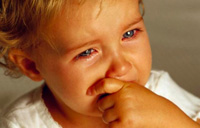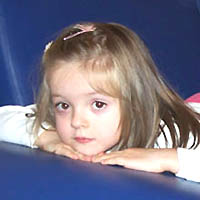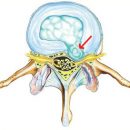Children will know the world around them through the game. But not authist. We call them special children - because they cannot play. Teach such a child to play - Means to overcome his illness, pointing to him the way to our world.
Content
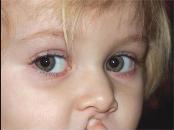
According to many specialists and observations of parents, the unusual of the development of autistic children is pronounced, with very evidence of the age of 2.5-3 to 6-7 years, in the period that we call critical. On how correct parents, close, experts will appreciate the state of the child, will understand that he needs a special approach to education and training, and perhaps the treatment will depend on how he can enter life and find himself in it.
It is well known that in the normal development at this age, the most active development of the world, the methods of interaction with it, the development of speech, thinking, creativity, fantasy, formation of character; The child begins to understand the emotional side of the relationship between people, to realize himself. In the game, he expresses himself, preparing for the future. What we see with early childhood autism?
One of the most frequent complaints of parents - the child does not play anything (sometimes in 6-7 years) or strangely plays, monotonous. At the advisory acceptance of the mother of the six-year-old boy says:
— The first thing that we with my husband alerted, is how he began to play. Until the year, his favorite toy was a big parsley neoshenia, which he played, lying in the crib and in Manege: pushing her legs, the nevosha ranks, and the baby listened to the sounds of various duration and height, very happy, and looked at him very funny. When this toy was broken, and the other such to get it then failed, the son was very sidewood and new toys rejected.
Once, sitting in a mannezh, he picked up a planken sheet of paper and began to tear it into small pieces. It was the impression that he listened to the sound of the tanking paper, and no matter how Carrice, he always calmed himself, if he was given the paper. He did not accept other toys for a long time, did not pay attention to them, or even threw out of a player or bed.
Perhaps most of all he liked to walk on the street. He loved a lot to walk, silently examining everything that was found along the way. We lived near the railway, and about three years he constantly pulled us there and gained a special pleasure when the train swept past. He still didn't actually play toys, but we noticed that he likes to lay out long rows of counting sticks on the floor: while the son was swinging and quietly buzzed. He didn't let us in the game, frustrated if we were too persistent. Once it painted us: he plays a train!
We immediately bought him a children's railway, he was very happy, but the most amazing - from the first time allowed us to play with him together: I took our suggestions, and then I began to add all new and new details. And the sticks no longer played, they seemed to cease to exist for him. We were very lucky that we understood our baby, because in the future he began to play in other games, and with us, and with a sister.
The story is generally prosperous, you can even say that this family is lucky in some sense: autism in a child is not deep, his game with chopsticks was a manipulative, primitive, but already symbolic, and this parents were not allowed.
In heavier (and more frequent) cases during autism, we often see a similar, but completely different picture of the picture: the child is immersed in monotonous, repeating movements, actions that increase its resistance to the most diverse external influences, as if driving their own unpleasant experiences, feeling of discomfort, fears, anxiety. Autostimulation actions most often appear with complete or partial insulation, due to the inability or limited contacts.
Of course, both moments are undeveloped, rolled up game and autostimulation in real, specific situations - often so tightly intertwined that it is very difficult to highlight them.
In the example above, it is very important to note that the parents did not impose their own game options to their son, they did not try to insist hard on them, but went «from child»: noticed what he liked, tried to understand what attachment is that it attracts.
How to help the autistist in the game
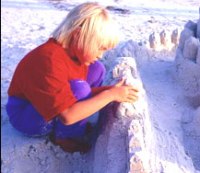 In more severe cases, even the rigus of a symbolic game is not viewed, you need to note those toys, non-chairs, actions on which at least for a short time, but from time to time fixes the child. All this should be used for the development of contact, interaction, forming game activity.
In more severe cases, even the rigus of a symbolic game is not viewed, you need to note those toys, non-chairs, actions on which at least for a short time, but from time to time fixes the child. All this should be used for the development of contact, interaction, forming game activity.
From experience O. WITH. Nikolskaya (this is one of the first psychologists in Russia, held seriously early child autism and its correction, now a peaceful scientist):
— Four-year smiling. With anyone did not come into contact, besides mom, practically without speech, loved to play the designer, but this game consisted, as in the previous case, in a series of elements of the designer: sometimes only one color, sometimes alternating colors, blue and yellow. He repeated this game for all weeks and even months. «Game» Here it is appropriate to take in quotes: there were no signs of symbolic or the more role-playing game, and the child's actions, apparently, were a spontaneous attempt to organize the surrounding space, give it a clear ordering, rhythm.
Once the elements of the same color removed. It caused anxiety in the boy, anxious. When he began to upload a number of only from the blue elements, Yellow filed a psychologist to him, holding another in his hands, and the boy himself took him. Such interaction continued long. As Ilyusha loved to go to the cottage in the train, a row, built from the designer, tried to turn into a train: they were blinded from a man's plasticine: it's Ilyusha, he travels in the train at the cottage; Other people denoted mother, sister and t.D.
At first, he dropped the figures, but at some point he accepted the game, and then it was possible to deploy an increasingly emotional and thorough story, where he was the main participant and everything he was surrounded in the country and on the way to her. There is no doubt that the manipulative stereotypical actions of the Ilyushi to the symbolic, the role-playing game could not transform themselves. Necessarily needed exactly directed, delicate, taking into account its features and interests. It is necessary to provide it patiently, not counting on immediate success, without losing hope with failures.
On a specialist Nadya, but your child is yours!
No doubt and the fact that in the development of gaming activities in autistic children is extremely large role belongs not only and not so much specialist how many parents. «My son doesn't know how to play at all, "one mother writes to us," it's impossible to force him, and he himself does not want anything. My deep conviction: you can not provide such children to themselves, they should only be engaged in specialists: to treat, teach, adapt to life».
What can I answer? First, not «Does not want», but «can not» play; secondly, it is impossible to force to play categorically; And finally, thirdly, who, however, Mama should know and feel their child, to see what he pays attention to at least for a while?
Indeed, among autistic children there are those who have disorders manifest themselves in extremely severe form: they are hard to focus, incapable even to minimal purposeful activities, are most often devoid of speech.
To form a plot game in a critical period of such children is almost impossible. Therefore, the task is made otherwise: not to develop the game, but using the term Western colleagues, «activity», Install at least elementary contact with the child, tactile, at the level of joint motor activity, the simplest actions: decompose the mosaic on boxes according to color or form; ride rings on a wand or large and medium buttons for different threads using a plastic needle and T.D.
Such activity requires constant promotion, but such that at least a little like a child: stroke the back, give a little candy or a piece of cookies, shake or eat on your hands. Any encouragement is accompanied by a corresponding brief and emotional assessment: «Well done!», «Smart!», «It turns out wonderful!» and T.NS.
It is not important that you said, but how, with what an emotional charge: the child should understand that you are better with you that you are a source of pleasant impressions and sensations (let the first pores of physical), little and the word, and you yourself will acquire for him Independent value. This will be the basis on which it will be possible to try to create more complex forms of contact and activity, primarily self-service skills.
Of course, everything will not get immediately, but should not. There may be manifestations of aggression, negativism, cry. Then you need to stay quite hard and persistent, having deprived the child for a short one's familiar, beloved promotion. Of course, it is not very nice, but we must remember: to achieve the child of the right behavior, purposeful activities, we form the appropriate stereotype, and the child is easier to interact, to know the world, learn.
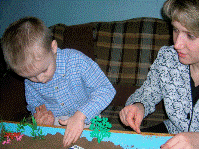
- He has been six years old, but I still could not teach him even to use the pot. It seems that he is afraid of pot. Because of this, we cannot really go anywhere, because he is already big, - one mother told.
Such a serious problem stands in front of many families of deep autistic children, and first of all it is necessary to figure out why they refuse to sit on a pot. Causes can be very different: due to painful sensations in constipation that autistic children often suffer; Or the pot was cold when the child was planted for the first time; Or maybe he was too bright coloring or any frightening form: In recent years, pots are produced in the form of a dog, an elephant and other animals, and this is many autistic children cause fear.
One of our pupils, for example, the fear caused urine jet herself, and his long time had to teach first to the jet of water from the crane, the nose of the kettle, etc. If the cause of the fears is clear, the first thing you need to do is to remove this moment. How - this is a private question related to the specifics of the child.
But with all the possible options, the most important thing is to create maximum emotional comfort, give a positive reinforcement after the successful implementation of the necessary. Successfully making everything that was required, and ending with a pot, one of our pupils said: «Well, so I earned a chocolate». Training to all household skills a very long and serious process, he needs to attach the greatest importance, otherwise to cope with many of them everything is more difficult and more difficult.



